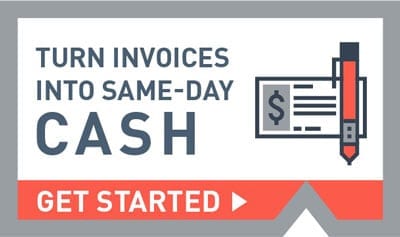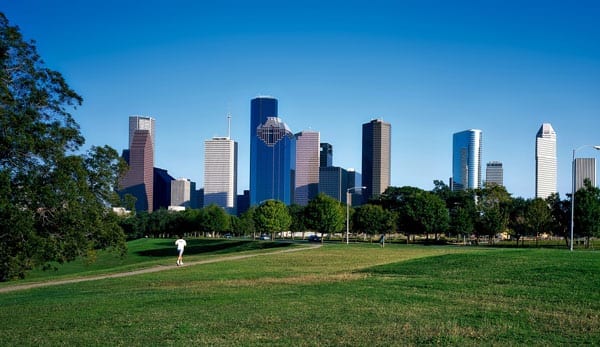Factoring Companies in Pasadena
Stop Waiting to Get Paid
Are you tired of waiting to get paid? Could you use cash now for bills, payroll, equipment or other business needs? If so, our Pasadena invoice factoring programs are your solution. Invoice factoring, also known as accounts-receivable financing, is a funding method companies use to speed up their cash flow and eliminate the wait on slow-paying customers. The process works by selling your invoices to Scale Funding. The same day that we receive your invoices, we’ll quickly confirm them and transfer you a competitive advance directly into your bank account. Once your customer pays the invoice, weeks or even months later, we’ll remit the remaining balance less our guaranteed low factoring fee.
While some may think that a business loan or line of credit can help with your business funding methods, there are several differences between them and our Pasadena accounts-receivable financing programs.
Accounts-Receivable Financing |
Loans & Lines of Credit |
| 15 minute approval | Lengthy approval process |
| Same-day funding | Funding in 1-3 months |
| Eliminates cash-flow gap | Cash-flow gap is still present |
| No additional debt created | Additional debt created |
| Funding grows as your business grows | Funding limit is capped until new approval is complete |
Custom Programs to Work for You
 Although many companies come to us to eliminate the cash-flow gap caused by slow-paying customers, there are also several other reasons to choose Scale Funding over other funding and factoring companies in Pasadena and Texas.
Although many companies come to us to eliminate the cash-flow gap caused by slow-paying customers, there are also several other reasons to choose Scale Funding over other funding and factoring companies in Pasadena and Texas.
First, we offer custom programs to work for you. Whether you’re just starting up or are expanding quickly, we have a financing line for you. Our monthly programs range from $50,000 to $20 million, giving you the flexibility your business needs.
Second, we’re able to offer financing when others can’t. If you have maxed-out credit, no credit, have filed for bankruptcy or have a tax lien, we can work with you.
So if you invoice other businesses, invoice at least $50,000 per month and could use some cash for your business, contact us today.
Serving B2B Industries Since 1994
For more than 22 years, we’ve funded a variety of industries through our factoring programs. Some of these include:
  |
  |
  |
  |
  |
  |
  |
  |
  |
  |
Pasadena, Texas


Pasadena is about 20 minutes from Houston.
Pasadena, Texas, is located off of State Highway 225 in southeastern Harris County between Deer Park and Houston. The city was established in 1893 by John H. Burnett of Galveston. Pasadena’s population is 149,043 as of the 2010 U.S. Census, making it the second largest city in Harris County.
History
The area was named Pasadena as a result of its lavish vegetation. In 1894, Houston, the Northern Railroad and La Porte worked through the area and opened it for improvement as a farming community. Charles R. Munger, a retired Kansas broker, and Cora Bacon Foster, a land promoter, were instrumental in planning the early community.
After the 1900 Galveston hurricane, Clara Barton of the American Red Cross bought 1.5 million strawberry plants for farmers on the Gulf Coast. Pasadena immediately labeled itself as the strawberry capital of the area. By the 1920s all of southeast Harris County was known as “Pasadena Acres.” Farmers in Pasadena sold melons, cucumbers, cape jasmine flowers and other produce in addition to strawberries.
In 1894, a private school was founded in Pasadena and in 1895, it turned into a part of the Harrisburg Common School District. In 1899, Pasadena inhabitants established an independent school system, which was the first in Harris County. In 1924, a four-year secondary school program was started with the development of Pasadena High School. In 1935, both the south Houston and Genoa school communities were consolidated into the Pasadena system.
In 1893, a union Sunday school was organized. People went to the union church in the nearby area of Deepwater. The Methodists were the first church in Pasadena in 1896, and the Baptists followed in 1898. Both assemblies used the school building for service until the Baptists finished the construction of their church building in 1905. The Methodists followed in 1907. The Assembly of God church was established thereafter and constructed its own place of worship.
On December 22, 1923, Pasadena citizens voted to incorporate, but shortly thereafter chose to un-incorporate on November 29, 1924. In 1928, they finally again voted to incorporate. The city occupied a large part of the land that Burnett had initially plotted for his town. During the time of incorporation, electricity, water and gas utilities had just been installed in the community.
Economy
Transforming from a farming economy to a modern one didn’t happen until the late 1930s, when the war in Europe spurred a noteworthy increase in the ship channel industries. Pasadena had a population of 3,436 in 1940, but by the 50s it had increased to 22,483 as the post-war boom gained momentum. It annexed the regions of Red Bluff, Middle Bayou and Deepwater. From 1.7 square miles in 1893 the area gradually increased to 58.6 square miles in 1980, when the city had about 112,560 residents.
In 1993, Pasadena reached a population of 122,805, with 2,147 businesses. In 2000, the number of residents was 141,674, with 3,709 businesses. Jobs in Pasadena are firmly linked to the Lyndon B. Johnson Space Center, the ship channel enterprises and the Bayport Industrial District.
The following are Pasadena’s key economic sectors: maritime shipping, aerospace, healthcare, solar panel manufacturing, petrochemical processing, exploration for petroleum and gas and petroleum refining. Economic growth of the area is linked to the below entities:
- The Pasadena Refining System
- Lyndon B. Johnson Space Center
- National Aeronautics and Space Administration
- the Bayport Shipping Terminal and Industrial District
- Houston Ship Channel
Arts and Culture
Strawberry Festival: To honor Pasadena’s strawberry history, the city holds a yearly Pasadena Strawberry Festival. Strawberry Road extends through a part of the city close to where the old strawberry crops grew.
Pasadena Philharmonic Society and Orchestra: This is a combination of two gatherings. The society is comprised of individuals from the neighborhood area that support classical music and the fine arts. The orchestra is comprised of college music students, educators, musicians and selected secondary school understudies. The festival had its inaugural performance in the fall of 1982, and the Philharmonic has continued it ever since.
Park and Tourism
Below are the Pasadena major tourist attractions:
- The San Jacinto Strawberry Festival
- Pasadena Rodeo
- Armand Bayou Nature Center
- Bay Area Museum
- The Pasadena Historical Museum
Armand Bayou Nature Center is 2,500 acres of land preserve on the western shore of Galveston Bay in Pasadena. It is the only remnant of this area’s unique ecosystem. Varieties of vegetation have flourished here, including bottomland hardwoods. Several types of wildlife flourish in the scattered lakes and narrow wooded streams. Armand Bayou additionally is a nursery and breeding ground for some shellfish and finfish, and a safe house for rarely-seen animal species such as owls and bobcats.
The following are the community centers that Harris County operates in Pasadena:
- Bay Area Community Center
- Clear Lake Water Front
- East Harris County Activity Center
Quality of Life
Texas Chiropractic College and San Jacinto College are located in Pasadena. High-tech organizations in the area connected to SJC have sprung up. One of the country’s biggest chemical processing complexes, The Bayport Industrial District, is critical for jobs in Pasadena. The opening of the Bayport shipping terminal is quickly adding to the metropolitan economic base. Some of the top employers in the city are:
- Dorsett Brothers Concrete Supply, Inc.
- Pasadena Independent School District
- SGS Petroleum Service Corporation
- Silver Eagle Distributors, L.P.
- San Jacinto College
- The Boeing Company
- Zachry Holdings, Inc.
- Mundy Company
- Shell – Deer Park
City of Pasadena
The city of Pasadena is proactive in observing the bigger picture and helping you explore it. Imaginative techniques for decreasing costs of industrial start-ups make the city more competitive while boosting industrial prospects. This is one of the reasons why a long-term vision was created for the future of Pasadena through the Pasadena Second Century Board.


